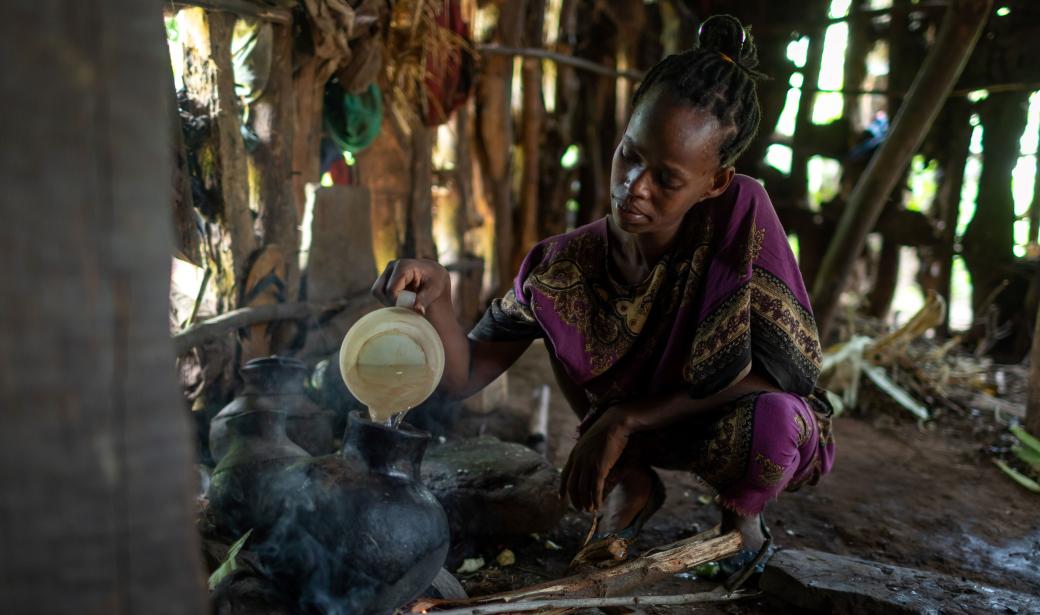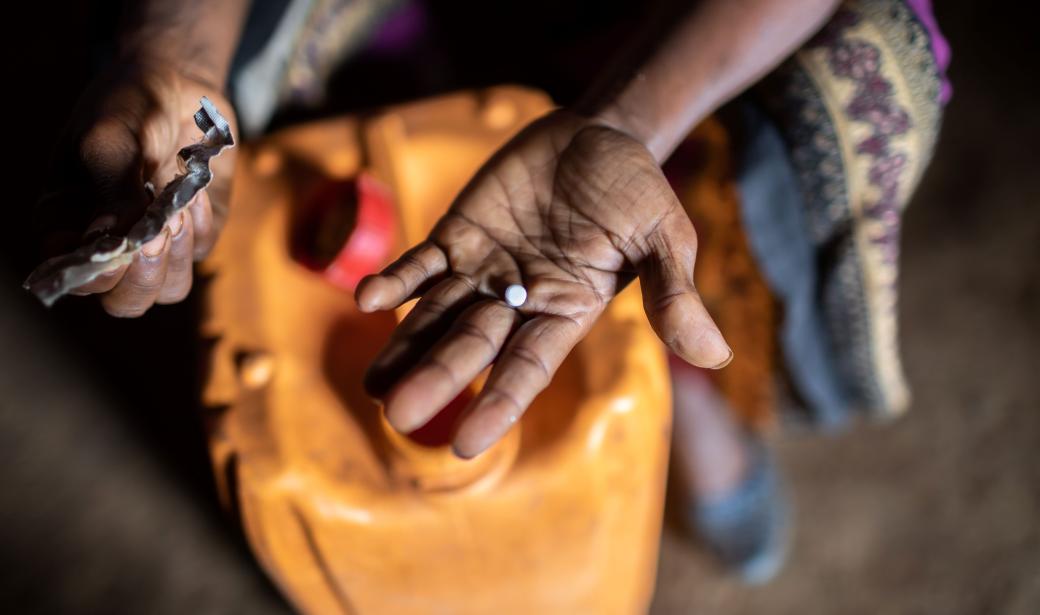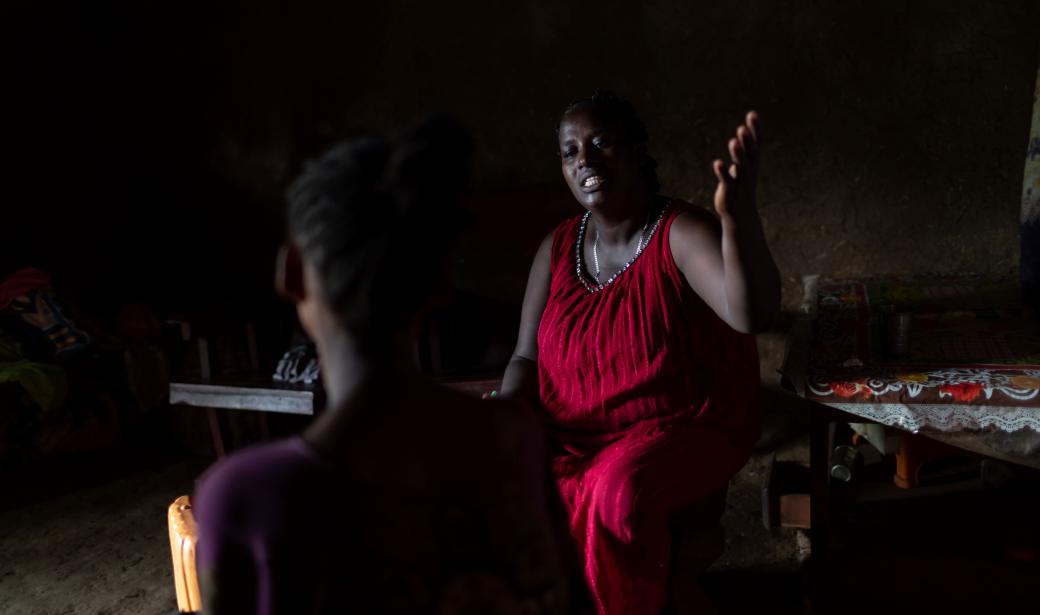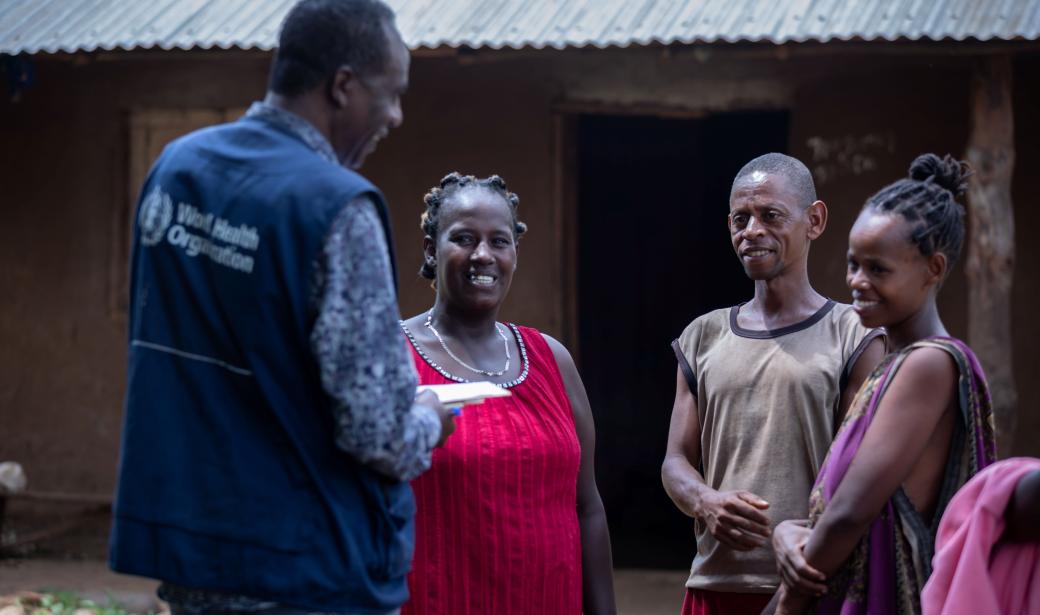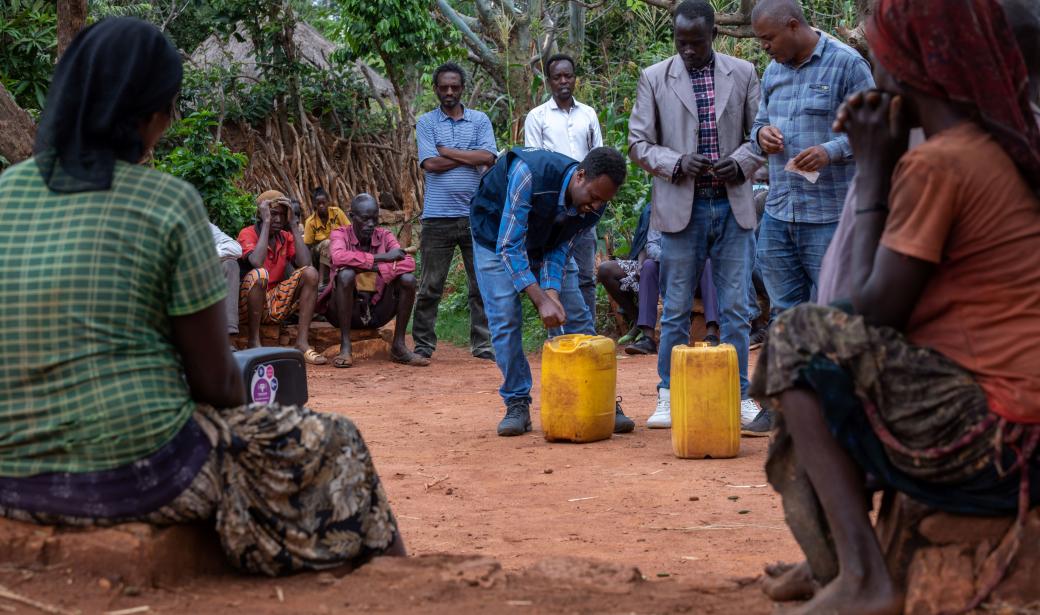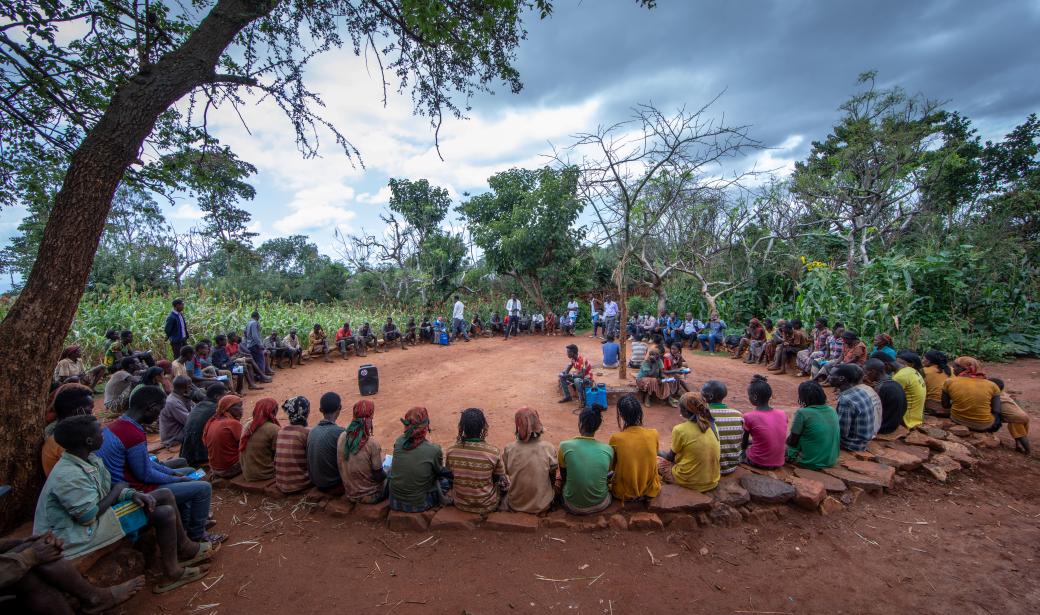Addis Ababa ‒ A year after the first cholera cases in Ethiopia’s current outbreak were detected in August 2022, it has spread to 10 of the country’s 13 regions. More recently, however, owing to a government-led response supported by partners including World Health Organization (WHO), new cases have decreased significantly in two of the three worst affected regions – Somali and to some extent the Southern Nations, Nationalities and Peoples (SNNP) region. Somali region was able to successfully bring the outbreak under control.
Health champions are at the forefront of the response, serving as role models within their communities and leading by example in the implementation of good hygiene practices in their households. They also participate actively in community discussions.
To support the work of the health champions, WHO helps monitor water quality, provides supplies such as household water treatment tablets, coordinates supporting partners and works with health authorities to engage communities and encourage positive behavioural change.
These efforts help to guide families on hygiene and sanitation practices, how to treat water at a household level and raise awareness on health practices to prevent cholera.
Health champions are at the forefront of the response, serving as role models within their communities and leading by example in the implementation of good hygiene practices in their households. They also participate actively in community discussions.
To support the work of the health champions, WHO helps monitor water quality, provides supplies such as household water treatment tablets, coordinates supporting partners and works with health authorities to engage communities and encourage positive behavioural change.
These efforts help to guide families on hygiene and sanitation practices, how to treat water at a household level and raise awareness on health practices to prevent cholera.
It is early morning in a rural district in Gofa zone in southern Ethiopia, and Aregash Berhanu, 30, is preparing tea for her husband and five children.
She contracted cholera a few weeks previously and was taken to a treatment centre where she received medication and oral rehydration solution.
“I was ill because of consuming contaminated water from a river. Now, I make sure that I use treated water at home. I have also dug a new latrine for the family. I always wash my hands after using the toilet and teach my children to do the same,” she says.
She contracted cholera a few weeks previously and was taken to a treatment centre where she received medication and oral rehydration solution.
“I was ill because of consuming contaminated water from a river. Now, I make sure that I use treated water at home. I have also dug a new latrine for the family. I always wash my hands after using the toilet and teach my children to do the same,” she says.
Following her recovery, Aregash joined a government-led programme designed to promote health measures to prevent the spread of diseases like cholera. She is a health champion and role model in good hygiene practices in her community.
In her village, she participates in women’s group dialogues on health and other social services, while encouraging group members to take preventive measures to curb the spread of cholera in their community.
In the area where she lives, there are 36 village development and social services "armies", divided into 180 smaller cells. Between one and five teams support, promote and implement various development activities. Each of the “armies” features a dedicated women's group.
In her village, she participates in women’s group dialogues on health and other social services, while encouraging group members to take preventive measures to curb the spread of cholera in their community.
In the area where she lives, there are 36 village development and social services "armies", divided into 180 smaller cells. Between one and five teams support, promote and implement various development activities. Each of the “armies” features a dedicated women's group.
With around 6000 cases and 69 deaths since the start of the outbreak, the SNNP region is the second worst affected by the current cholera outbreak.
In Gofa zone, where Aregash lives, like in many other districts, people often fetch water from the river and use it for all households needs such as drinking water, cooking, laundry and washing. The consumption of unsafe water is one of the main sources of contamination by the bacteria responsible for cholera.
Aregash and other community members are provided with water purification tablets by the health authorities, with support from World Health Organization (WHO) and other partners.
In Gofa zone, where Aregash lives, like in many other districts, people often fetch water from the river and use it for all households needs such as drinking water, cooking, laundry and washing. The consumption of unsafe water is one of the main sources of contamination by the bacteria responsible for cholera.
Aregash and other community members are provided with water purification tablets by the health authorities, with support from World Health Organization (WHO) and other partners.
Aregash works closely with health extension worker, Deraba Demise, who visits her to ensure she is continuing to adhere to good hygiene practices.
Health extension workers and their supervisors identify influential community and family members and orient them on public health actions. The health champions, like Aregash, then become agents of change within their families and their communities.
Health extension workers regularly visit the villages they oversee to help ensure sustainable and consistent improvement and implementation of preventive and control measures to address common public health problems, including cholera. The functionality and effectiveness of the development “armies” is highly dependent on close follow-up and regular support of health extension workers.
Health extension workers and their supervisors identify influential community and family members and orient them on public health actions. The health champions, like Aregash, then become agents of change within their families and their communities.
Health extension workers regularly visit the villages they oversee to help ensure sustainable and consistent improvement and implementation of preventive and control measures to address common public health problems, including cholera. The functionality and effectiveness of the development “armies” is highly dependent on close follow-up and regular support of health extension workers.
WHO, with financial support from the United States (US) International Agency for Development, the US Centers for Disease Control and Prevention, and the Central Emergency Response Fund, is working with these health extension workers to sensitize community members and equip health champions with accurate, easy to understand information on how cholera spreads, and can be prevented.
“We can’t change access to safe water in a short period of time but can take measures at household level that have swift, positive impacts on people’s health,” says Markos Manote, Head of Gofa Zone Health Department. “The community-based interventions are a long-lasting, cost-effective solution that enables us to fight this devastating disease.”
“We can’t change access to safe water in a short period of time but can take measures at household level that have swift, positive impacts on people’s health,” says Markos Manote, Head of Gofa Zone Health Department. “The community-based interventions are a long-lasting, cost-effective solution that enables us to fight this devastating disease.”
In June 2023, analysis of samples taken from multiple water points in Gofa zone showed that most community water sources were contaminated with bacteria. In response, WHO is working with local health authorities to train communities to purify and treat water at household level. The communication and awareness creation activities have capacitated the community to ensure safe handling and safe use of water.
WHO and other partners have also been supporting public health workers to conduct community mobilization campaigns, including mass gatherings and door-to-door awareness-raising. The aim is to effect behavioural change regarding consumption of properly treated. safe drinking water, and the implementation of good water, sanitation and hygiene practices at household level.
For Additional Information or to Request Interviews, Please contact:
Alemtsehay Zergaw Gebremichael
Communications Officer
WHO Ethiopia
Email: gebremichaela [at] who.int (gebremichaela[at]who[dot]int)
Meenakshi Dalal
Media Relations Officer
WHO Regional Office for Africa
Email: dalalm [at] who.int (dalalm[at]who[dot]int)
Tel: +254 703 245 761 (WhatsApp)



